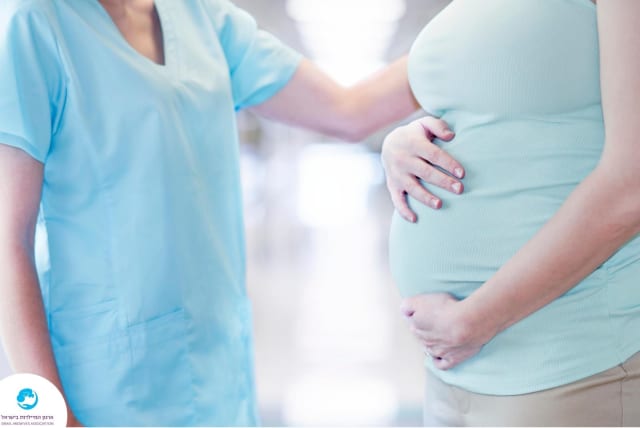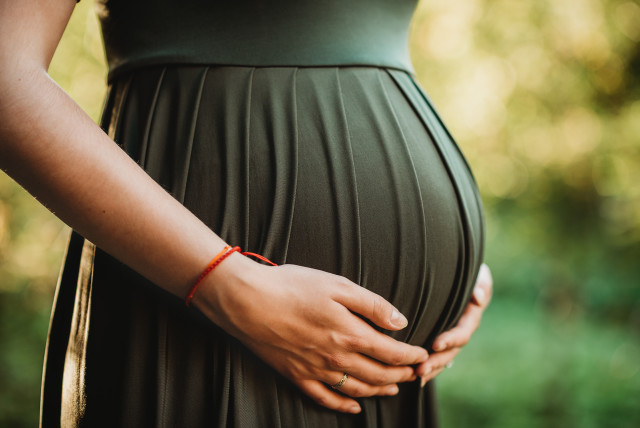This is the safest age to give birth: New study's surprising findings

Giving birth at a later age may be risky, but younger mothers face their own challenges. What is the ideal age range for a safe delivery?
We already know that giving birth at a later age is considered riskier, but what about giving birth at a very young age? Is there a safer range for both the fetus and the mother? Research has discovered that the ideal age range for mothers to give birth is between 23 and 32, as it is associated with a lower likelihood of non-chromosomal problems in babies.
The study, published in the journal Nature, found that the risk of fetal abnormalities, known as non-chromosomal anomalies (NCA), was lowest for women aged 23 to 32. Women over 32 had a 15% higher chance of such births, while younger mothers had a 20% higher chance.
To conduct the study, researchers analyzed data from 2.8 million pregnancies between 1980 and 2008. They examined the age of the women at the time of delivery and calculated the risk of giving birth to a baby with a non-chromosomal anomaly at each age. On average, the study revealed that approximately 1 in 100 babies suffered from one of these conditions.
The study also found that as the mother's age increased, the babies became more susceptible to conditions such as Down syndrome, heart disease, and cleft lip and palate. Conversely, younger mothers saw defects in the central nervous system in their children, according to a study from Semmelweis University in Budapest.
One hypothesis suggests that the increased risk in older women is likely due to the age of their eggs. On the other hand, the higher risk in young women may be linked to factors such as smoking, drug use, and alcohol consumption, although the study did not investigate the specific causes.
Various factors contribute to non-chromosomal anomalies, including exposure to water pollution, inadequate nutrition, and exposure to toxins, pollutants, or radiation during fetal development. However, pinpointing the specific trigger for each case often remains unknown.
Is there an ideal age to have a first child?
In a 2022 study, researchers claimed that the optimal time for a woman to have her first child might be between the ages of 24 and 25, aligning with the findings of the current study.
The researchers discovered that women who gave birth before or after this age range had up to a 5% higher risk of dying from any cause within 18 years. The risk followed a U-shaped trend, indicating that the further away they were from the age of 24 or 25 when giving birth, the greater the risk.
Published in the journal Maturitas, the study examined data from 4,044 women in two regions of South Korea. The researchers compared 1,498 women who gave birth to their first child between the ages of 20 and 23, 1,033 mothers who gave birth between the ages of 24 and 25, and 1,513 women who gave birth between the ages of 26 and 36.
Using government health records, the researchers tracked the women for 18 years. Out of the total 243 deaths during the study, more than half belonged to the youngest group of mothers, and a third were from the older groups.
According to the researchers, very young mothers often come from deprived areas, which puts them at a higher risk of various mental and physical illnesses. On the other hand, they hypothesized that the cost of raising children and giving birth may be more challenging for older mothers.
Jerusalem Post Store
`; document.getElementById("linkPremium").innerHTML = cont; var divWithLink = document.getElementById("premium-link"); if (divWithLink !== null && divWithLink !== 'undefined') { divWithLink.style.border = "solid 1px #cb0f3e"; divWithLink.style.textAlign = "center"; divWithLink.style.marginBottom = "15px"; divWithLink.style.marginTop = "15px"; divWithLink.style.width = "100%"; divWithLink.style.backgroundColor = "#122952"; divWithLink.style.color = "#ffffff"; divWithLink.style.lineHeight = "1.5"; } } (function (v, i) { });

